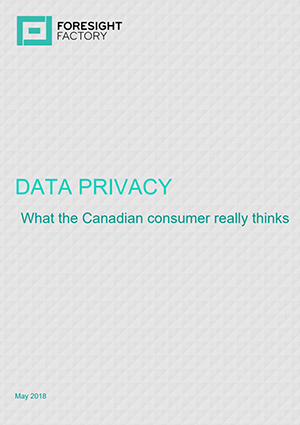Data Privacy Study: What the Canadian Consumer Really Thinks

In today’s digital world, privacy and the data economy have become key buzzwords. Media coverage of data breaches has raised consumer awareness about how personal data is being used, managed and shared. As a result, the regulatory environment on data privacy is becoming more stringent. The new EU General Data Protection Regulation (GDPR) takes effect on May 25, 2018, along with other global regulatory changes. In Canada, we have mandatory breach reporting regulations coming into force and there are efforts underway to amend our private-sector privacy law.
The Canadian Marketing Association, in collaboration with its member organizations, has been active in responding to consumer concerns about data privacy and the need for increased transparency on how their data is being collected, used and shared. We have pro-actively created self-regulatory measures on privacy. We have consulted with the Office of the Privacy Commissioner on numerous privacy issues to ensure consumers’ concerns are being addressed. It is important that the Canadian economy continues to thrive – with the help of innovative and responsible business models – in a climate that protects consumer rights.
To better understand Canadian consumer perspectives, the CMA recently participated in a global study conducted by Foresight Factory in 10 countries (Argentina, Australia, Canada, France, Germany, Netherlands, Singapore, Spain, UK and US) on behalf of the Global Alliance of Data-Driven Marketing Associations. Findings are based on an online survey, conducted in November 2017, of at least 1,000 people in each market.
Canadian-specific study results show there is some interesting interplay between consumers’ awareness of data issues and their understanding of how their personal data is used by companies. 77% of Canadians have some concern about their online privacy. At the same time, the research shows that consumer comfort is improving and that there is fertile ground for a healthy exchange of data in Canada. 57% of consumers agree that disclosing personal information is increasingly part of modern life, and 35% view the exchange of personal information as essential for the smooth running of modern society. Most notably, 45% of millennials agree with that statement.
The information that the research provides about millennials is very insightful. Millennials are unique as a generation because they have grown up in the digital age and their attitudes on data privacy are considerably different than other generational groups. These differences are evident in the results.
It is encouraging to see consumers growing more comfortable with data sharing. The key to further addressing overall concerns will be to focus consumer understanding on the practical benefits of the data exchanges they are making. Trust, transparency and control will continue to be the bedrock upon which brands will have to build their relationships with consumers.




































